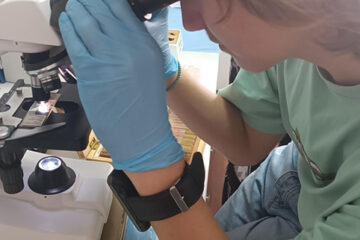COVID-19 and Online Education
Much has been said about the look and feel of the post-Covid world in many areas of society and particularly in the workplace and in education.
Social distancing and hygiene considerations have already led to many businesses cutting back on office space and encouraging employees to work from home and this looks like a pattern that is set to continue. In education, the debate still rages over whether it is safe and practical to allow students to return to school but in the background there remains likely threat of a second wave once summer is over and what the implications will be for education if schools have to close once more.
Early reviews of schools’ responses to this spring’s closure shows that the picture is mixed with a bias towards ineffectiveness. In the UK, private schools, purportedly because their students can afford the technology to make us of online education, have provided the best standards of education over the lockdown period whilst many state schools have provided little or any education at all beyond asking students to read their textbooks and answer the questions at the end of each chapter.
Even where online teaching has provided a comprehensive full-time education over the period, there have been criticisms which have ranged from the basic ‘It can’t be as good as face to face teaching’ to the more informed where educators, and some parents, have recognised that a simplistic, some might say lazy, method of delivery has reduced the impact of the teaching and learning.
Online education has been with us for some time now – it’s not just a product of the Covid generation, but MOOCs, as they are known, provided by organisations like Coursera and FutureLearn, have also had their problems. A recent survey showed that 95% of people who sign up to the courses never complete them and it’s not just the relevancy of the content or the time required to complete the course that are factors in determining whether a participant finishes the course.
Coursera carried out a survey, comparing online lesson delivery with student outcomes, and discovered that active or participatory learning was twice as effective as passive learning (the previous incarnation of MOOCs) where courses are pre-recorded and delivered without student interaction.
As a result, Coursera and other MOOC providers have modified their courses. They found that simple changes such as pausing videos at certain points and asking questions about what had been viewed had a significant impact on student engagement, learning and understanding.
Taking this approach further and fully embracing the active learning philosophy, TLC Online School has incorporated many other elements of the approach into its online lessons. The introduction of learning buddies who support each other, just like the friend sat next to you in a physical classroom; group work over video platforms; student led sessions; hosted debates and more, take online education away from the staid, teacher-led, lecture style approach, to a much more interactive experience for the students. In many cases, this development has taken online learning ahead of the physical classroom in terms of student engagement and achievement, so much so that face to face schools are now incorporating many of the benefits of online education into the classroom.
From its inception, TLC Online School recognised the disadvantages as well as the benefits of online education, and aimed to reduce these to as close to zero whilst maximising the advantages.
Perfecting the experience and outcomes of online education is From its inception, TLC Online School recognised the disadvantagesour goal and as each day passes, we get closer to achieving it.



